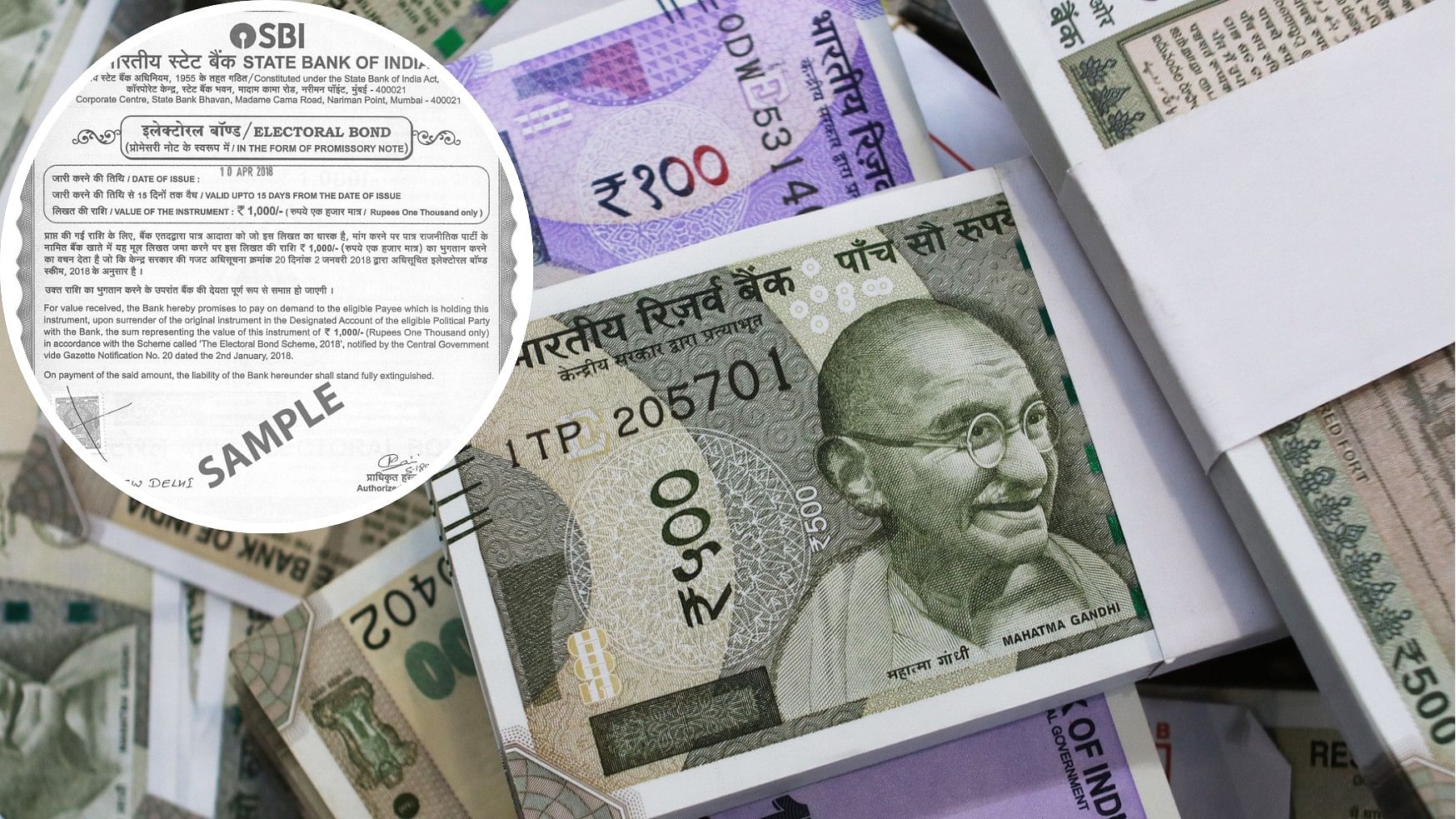
Representative image showing a sample of electoral bonds along with 500 and 100 rupee notes.
Credit: DH, iStock Photos
New Delhi: The Supreme Court on Friday declined to entertain four PILs for a court-monitored SIT probe under the supervision of a retired SC judge into the alleged instances of quid pro quo arrangments and award of contracts in lieu of huge donations to political parties through the controversial electoral bonds scheme.
A bench of Chief Justice of India (CJI) D Y Chandrachud and Justices J B Pardiwala and Manoj Misra said it could not order for a roving inquiry into the purchase of EBs on the basis of assumptions.
The court noted that even according to the petitioners, an element of uncertainty is involved where there is a proximate relationship between the purchase of the bonds and the award of a contract or change in policy, or commission or omission may be by authorities.
“Individual grievances of this nature, the presence or absence of quid pro quo would have to be pursued based on the remedies available under the law,” the bench said.
The court also said when a closure report is filed, recourse can be taken through appropriate remedies under the law governing criminal procedures.
During the hearing, the court said setting up a probe team will be a far-fetched roving enquiry.
“What will SIT do based on quid pro quo,” the court asked advocate Prashant Bhushan, who on behalf of the NGOs, said there is prima facie evidence as per the data on the Election Commission’s website regarding the purchase of electoral bonds.
Bhushan contended there is an example when a company purchased electoral bonds and a contract was awarded to it.
He asked how an FIR can be lodged in such cases and that some officers of the investigating agencies may also be involved in the underlying arrangement.
The bench said the court would have to see what the material is on record in connection with allegations of quid pro quo.
Bhushan said rival companies do not want to bring this to light because they fear that they may be blacklisted in the future as some investigative journalists unearthed the facts connected with this matter.
However, the bench said that setting up the SIT is not the only answer.
Bhushan said a probe team headed by a retired judge would be neutral and if there were quid pro quo arrangements, then such transactions become the proceeds of crime, and it is like theft and material needs to be recovered.
"No political party can be allowed to sit on money which they received by kickback or bribes through the electoral bonds scheme, therefore they should return the funds," he said.
In such circumstances, the only credible probe will be under the watchful eyes of the apex court, he said.
The bench, however, asked him how the court could intervene when there were other remedies available.
After the hearing, the bench declined to consider petitions filed by NGOs, Common Cause and CPIL and by Jai Prakash Sharma, Sudip Tamankar and Dr Khem Singh Bhati.
The petitioners claimed that the scheme of anonymous donations through EBs, which was struck down by the SC on February 14, had far-reaching ramifications on Indian democracy and politics.
It was revealed electoral bonds worth about Rs 16,518 crore were encashed by the political parties.
